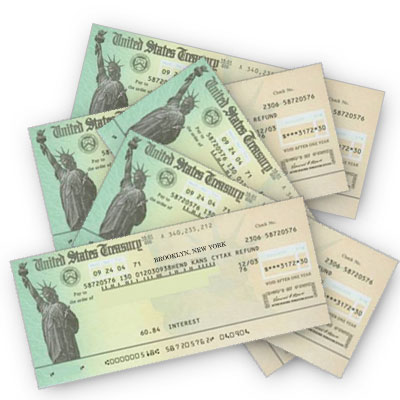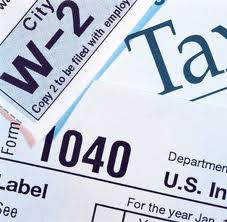
 Iowa State Income Tax
Tax Year 2024
Iowa State Income Tax
Tax Year 2024
1.1 -
Contents
1.
Iowa Income Tax Table
| Tax Bracket (Single) [2] | Tax Bracket (Couple) [3] | Marginal Tax Rate |
| $0+ | $0+ | 4.400% |
| $6,000+ | $12,000+ | 4.820% |
| $30,000+ | $60,000+ | 5.700% |
| $75,000+ | $150,000+ | 6.000% |
Note: We don't currently have Iowa's income tax brackets for tax year 2024. Until updated 2024 tax rates become available for Iowa, the tax brackets shown above and used in the income tax calculator will be from tax year 2023.
Learn how marginal tax brackets work ![]()
2.
Iowa Income Tax Calculator
3.
The Iowa Income Tax
Iowa collects a state income tax at a maximum marginal tax rate of %, spread across tax brackets. Like the Federal Income Tax, Iowa's income tax allows couples filing jointly to pay a lower overall rate on their combined income with wider tax brackets for joint filers.
Notably, Iowa has the highest maximum marginal tax bracket in the United States. You can learn more about how the Iowa income tax compares to other states' income taxes by visiting our map of income taxes by state.
All single filers with a gross income of over $9,000 per year must file an Iowa tax return, and those filing as a couple or head of household must file if they earned over $13,500. Nonresidents must file a Nonresident Income Tax Return if they earned over $1,000 of income in Iowa over the filing period. Special filing limits also exist for seniors, dependents or military servicemen.
Iowa allows some local jurisdictions, like school districts, to charge a local surtax on top of the Iowa Income Tax. You can find more details about this surtax below.
Unlike the Federal Income Tax (which is due on April 15th), Iowa taxpayers have an extra 15 days to submit their Iowa tax return, which is due on April 30th of every year. If April 30th falls on a weekend, the tax due date is pushed up to the following Monday.
If you cannot pay your whole income tax bill, you are encouraged to submit a partial payment with your income tax return. Even if you cannot pay, you must still file. If you pay less then 90% of your tax debt on the due date, you will be charged a late fee of 5% or 10% (depending on whether you submitted your tax return, with or without a payment, on time).
Iowa Earned Income Tax CreditIf you want to claim an Warned Income Tax Credit (EITC) on your Iowa tax return, you must be have received the EITC on your Federal Tax Return. As of 2010, if you have received the EITC on your federal return, you can claim 7% of your Federal credit as a refundable credit on your Iowa income tax return.
Iowa Local School SurtaxAnother tax to keep in mind when filing your Iowa tax return is the local school surtax, which is collected by over 80% of Iowa's school districts. School districts in Iowa are permitted collect a surtax of up to 20% of the state income tax you pay (not 20% of your reported income), and these rates vary by school district. The average surtax is 0.3% (weighted by income, according to Tax Foundation data), and total of 297 Iowa school districts impose an income tax surcharge.
For example, if your local school district has a 5% surtax and you paid $1,000 in state income tax you will owe an additional $50 surtax to your local school district. In addition to school districts, municipalities may also impose an additional Local Option surtax to fund emergency medical services. You can access a full list of Iowa's school districts, with their 2012 local surtaxes, here.
There are 11 days left until Tax Day, on April 16th 2025. The IRS will start accepting eFiled tax returns in January 2020 - you can start your online tax return today for free with TurboTax  .
.
4.
Iowa Tax Deductions
Income tax deductions are expenses that can be deducted from your gross pre-tax income. Using deductions is an excellent way to reduce your Iowa income tax and maximize your refund, so be sure to research deductions that you mey be able to claim on your Federal and Iowa tax returns. For details on specific deductions available in Iowa, see the list of Iowa income tax deductions.
4.1 - Iowa Standard Deduction
-
 Unlike many other states, Iowa has no standard deduction. Certain itemized deductions (including property tax, qualified charitable contributions, etc) may be allowed depending on the income level and filing type of the taxpayer. Keep in mind that not all deductions allowed on your federal income tax return are necessarily going to be allowed on your Iowa income tax return.
Unlike many other states, Iowa has no standard deduction. Certain itemized deductions (including property tax, qualified charitable contributions, etc) may be allowed depending on the income level and filing type of the taxpayer. Keep in mind that not all deductions allowed on your federal income tax return are necessarily going to be allowed on your Iowa income tax return.
4.2 - Iowa Personal Exemptions
- Iowa has no personal exemption. The Federal Income Tax, however, does allow a personal exemption to be deducted from your gross income if you are responsible for supporting yourself financially.
4.3 - Iowa Dependent Deduction
- Unlike most states, Iowa does not have a dependent deduction. You can, however, claim dependent deductions on your Federal Tax Return.
4.4 - Iowa Itemized Deductions
- Iowa allows itemized deductions, and you can claim the same itemized deductions on your Iowa tax return as you do on your Federal tax return. You must choose between itemizing your deductions and choosing the Iowa standard deduction, so it's generally only worth itemizing your deductions if your itemized total is more then the Iowa and Federal standard deductions. For more details, visit the list of Iowa itemized deductions.
5.
Iowa Income Tax Forms
Tax-Rates.org provides easy access to five of the most commonly used Iowa income tax forms, in downloadable PDF format. For all of the tax forms we provide, visit our Iowa tax forms library or the 's tax forms page.
 .
.
6.
How To File Your Iowa Income Tax Return
7.
Where To Send Your Iowa Tax Return
Income Tax Returns (Payment Enclosed) Iowa Department of Revenue Iowa Income Tax Document Processing PO Box 9187 Des Moines IA 50306-9187 |
Income Tax Returns (Refund Owed or No Tax Owed) Iowa Income Tax Refund Processing Hoover State Office Bldg Des Moines IA 50319-0120 |
8.
e-Filing: Submit Your Iowa Tax Return Online
You can save time and money by electronically filing your Iowa income tax directly with the . Benefits of e-Filing your Iowa tax return include instant submission, error checking, and faster refund response times. Most tax preparers can electronically file your return for you, or you can do it yourself using free or paid income tax software, like the examples listed below.
The Iowa Department of Revenue's "eFile & Pay" portal allows individuals and businesses to file and pay their Iowa state income tax completely online, including forms IA1040/IA1040ES and IA1120/IA1120ES. To use the eFile system you must enroll though the DoR's website with your taxpayer ID (SSN) and personal information. Once your application has been received you will be provided with an eFile number that may be used to log in and submit your tax return online.
To e-file your Iowa and Federal income tax returns, you need a piece of tax software that is certified for eFile by the IRS. While most in-depth tax software charges a fee, there are several free options available through the states, and simple versions are also offered free of charge by most tax software companies.
The two most popular tax software packages are H&R Block At Home, sold by the H&R Block tax preparation company, and TurboTax Federal & State, sold by the Intuit software company. Both companies produce multiple editions for simple to very complex tax returns, so be sure to carefully compare the features offered by each package.
9.
Getting Your Iowa Tax Refund

If your state tax witholdings are greater then the amount of income tax you owe the state of Iowa, you will receive an income tax refund check from the government to make up the difference.
It should take one to three weeks for your refund check to be processed after your income tax return is recieved. E-filing your return and filing early can help ensure your refund check gets sent as quickly as possible.
Once you've filed your tax return, all you have to do is wait for your refund to arrive. If you want to check the status of your Iowa tax refund, you can visit the Iowa Income Tax Refund page.
 How can we improve this page? We value your comments and suggestions!
How can we improve this page? We value your comments and suggestions! Send Instant Feedback About This Page
10.
References
- Our state ranking and income tax figures are based on a family of four (married parents with two children) earning the national median household income of $50,000 per year. Deductions and personal exemptions are taken into account, but some state-specific deductions and tax credit programs may not be accounted for.
- Before the official 2025 Iowa income tax rates are released, provisional 2025 tax rates are based on Iowa's 2024 income tax brackets.
-
The 2025 state personal income tax brackets are updated from the Iowa and Tax Foundation
 data.
data.
-
Iowa tax forms are sourced from the Iowa income tax forms page
 , and are updated on a yearly basis. Please make sure the Iowa forms you are using are up-to-date.
, and are updated on a yearly basis. Please make sure the Iowa forms you are using are up-to-date.




 Donate BitCoin:
Donate BitCoin: